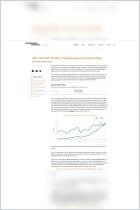
Read or listen offline
Recommendation
More and more US multinationals are undertaking corporate inversions – transactions in which a large firm becomes a “nominal subsidiary” of a smaller foreign company in a tax-friendly jurisdiction. Generally, companies structure such deals so that they can shelter income in a low-tax country. American corporations claim that these transactions are necessary if they are to remain globally competitive in a high US tax environment, but such assertions are “almost entirely fact free,” according to professor Edward D. Kleinbard. His rigorous examination of often-tedious tax rules contrasts with his fiery debunking of corporate complaints. getAbstract recommends Kleinbard’s intriguing, lively take on a timely topic – particularly as the White House moves to curtail inversions – to CEOs, legislators, and others with an interest in reforming the US corporate tax code and keeping American tax dollars in the United States.
Take-Aways
About the Author
Edward D. Kleinbard is a professor of law and business at the USC Gould School of Law.

















Comment on this summary or Diskussion beginnen